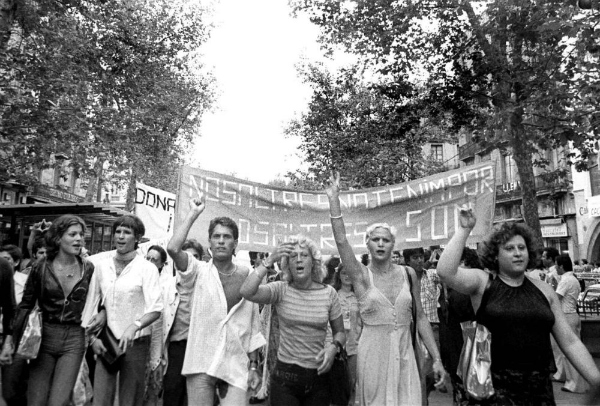
Photo via: Diario Sur
The photographer Colita, at an exhibition of her work earlier this year
Photo: Roser Vilallonga via La Vanguardia
Last Friday, Catalan photographer Colita rejected the National Photography Prize (Premio Nacional de Fotografía), which she had been awarded by the Spanish Ministry of Education, Culture, and Sports, El País reports.
In a letter sent to the culture minister, José Ignacio Wert, less than 24 hours after being notified that she had won the €30,000 cash award, Colita didn’t mince words, denouncing the “pitiful, shameful, and painful situation of culture and education in Spain.” “We will have to wait for other times, other people, other governments, to give us back our pride and honor,” she continued.
Colita’s rejection of the large award comes as the Catalan separatist movement continues to gain great traction in the region. Last Sunday, a symbolic referendum on Catalan independence took place in the region. Organized by Artur Mas i Gavarró, the president of Catalonia and leader of the liberal nationalist party CDC (Convergència Democràtica de Catalunya), the referendum’s main goal was to exert pressure on the Spanish government to organize a formal, binding referendum in the future.
With over two million votes cast (35 percent of the electorate) the results were clear: four out of five voters, a staggering 80 percent, said yes to independence, according to the Guardian. All eyes are now on Mariano Rajoy, Prime Minister of Spain, who is expected to address the government’s response to the symbolic Catalan referendum at at a press conference today.
Colita is the second Catalan cultural figure to prominently denounce the Spanish government in recent weeks. The week before, the Catalan musician Jordi Savall rejected the National Music Prize, also awarded by the Spanish Ministry of Education, Culture, and Sports. Savall, arguably one of the world’s top interpreters of viola da gamba and one of its leading Renaissance music experts, explained that he had rejected the prize in protest of the cultural policies of the Spanish government towards musicians. Savall has been publicly advocating for Catalonia’s right to self-determination in the last few months, which many punters saw as linked to his refusal of the Spanish prize.
Colita, however, has explicitly dissociated her refusal of the prize with any separatist position. “I believe in a Universal Culture,” she told El País. “My refusal to accept the prize has nothing to do with my situation as Catalan citizen.”
A photo by Colita, documenting a gay rights demonstration in Barcelona in 1977
Photo via: Diario Sur